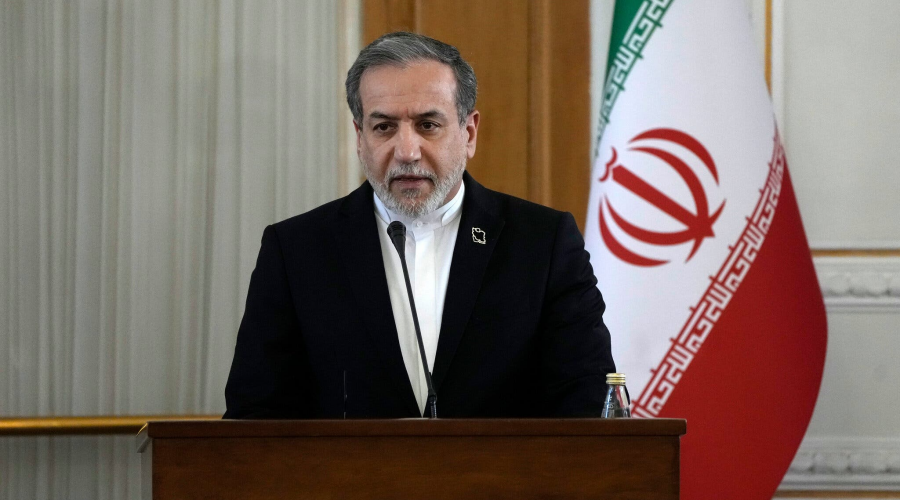Despite mixed messages from the Trump administration over whether it wants Iran to completely dismantle its nuclear program, Iranian officials said on Wednesday that they would keep talking to U.S. officials and focus on what America says in private during negotiations.
The Iranian statements came as the country’s Foreign Ministry confirmed that Foreign Minister Abbas Araghchi and President Trump’s special envoy, Steve Witkoff, would hold a second round of talks in Rome on Saturday. The White House did not immediately confirm the venue.
The two officials met last Saturday in Oman for a combination of indirect and direct talks that lasted more than two hours. Afterward, both sides described the meetings as constructive.
Mr. Araghchi told Iranian news media on Wednesday that the shifting messages from Washington in recent days, which moved from limiting Iran’s nuclear program to dismantling it completely, were “not helpful,” but that he would “wait to be informed on their real position during negotiations.”
“We will participate in the negotiations calmly and coolly without being influenced by any faction,” Mr. Araghchi said on the sidelines of a cabinet meeting in Tehran on Wednesday, according to a video. He added that Iran’s nuclear enrichment for peaceful energy was “real and genuine and we are ready to build trust regarding potential concerns, but the issue of enrichment is nonnegotiable.”
Divisions have emerged within Mr. Trump’s inner circle about what exactly the United States is demanding from Iran in the talks. Mr. Trump has said that he does not want Tehran to weaponize its program and obtain a nuclear bomb. He favored negotiating a deal after months of internal debate over whether to pursue diplomacy or support Israel’s plan to strike Iranian nuclear sites as soon as next month in order to hobble Tehran’s ability to build a bomb, according to administration officials and others briefed on the discussions.
The U.S. national security adviser, Michael Waltz, has said in recent weeks Iran must dismantle its nuclear enrichment program as part of a deal with Mr. Trump. And though Mr. Witkoff initially said in a Fox News interview on Monday that Iran could enrich uranium at a 3.6 percent cap — similar to the limit laid out in a 2015 nuclear deal struck between Iran and world powers — he then walked it back in a social media post on Tuesday, suggesting that dismantling the program was the goal.
The 2015 nuclear deal put measures in place to prevent Iran from militarizing its nuclear program by capping enrichment of uranium at 3.5 percent, transferring stockpiles of enriched uranium to Russia, and enforcing monitoring cameras and inspections by the U.N.’s International Atomic Energy Agency. Mr. Trump pulled the United States out of that agreement in 2018, saying it was not a good deal, and imposed tough economic sanctions on Iran.
About a year later, Iran moved away from its obligations under the deal and increased uranium enrichment to 60 percent. It has amassed enough enriched uranium to be able to make several bombs if it decides to weaponize, according to Rafael Grossi, the head of the U.N. atomic agency. Iran maintains its nuclear program is for peaceful purposes.
Mr. Grossi arrived in Tehran on Wednesday for a scheduled visit and met with Mr. Araghchi, according to footage shown on Iranian state television.
Mr. Araghchi planned to travel to Russia on Thursday to meet with his counterpart, Sergey V. Lavrov, and President Vladimir V. Putin of Russia to discuss the negotiations with the United States, among other issues, Mr. Araghchi told Iranian news media. He said that he would deliver a letter from Iran’s supreme leader, Ayatollah Ali Khamenei, to Mr. Putin, but did not elaborate.
On Wednesday evening, more than a thousand Iranians attended a virtual gathering on the application Clubhouse to talk about the negotiations. Many people living in Iran said they wanted the government to negotiate with the United States, even concede to all U.S. demands, in order to avert war and to bring about economic relief.
They said that they were breaking under inflation, the plunging value of their local currency and the dire state of the economy.
“When you don’t manage relations with the world, nothing will improve,” an Iranian identified as Vahid Babahei commented in the forum. “Why don’t you sit directly and resolve our issues? Sit down and negotiate. Trump is a man after a deal. It’s time our officials put people first and reach a deal.”
